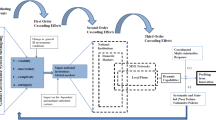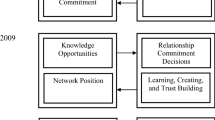Abstracts
This article provides a characterization of the internationalization of “global” European universities and discusses the role of the State in promoting greater internationalization and competitiveness levels of prominent national universities. The analysis supports previous arguments stating that global ranking of universities is strongly based on research, but reveals that the internationalization of research universities’ student population is also arranged to enhance research capacity. This finding is further reinforced by a positive association between the internationalization of the academic staff and the internationalization of the student population in one of those universities, being this association particularly strong with the doctoral student population. Finally, based on the analysis of two prominent national universities with different global competitiveness levels, we discuss the role of the State as a central supporter of these universities internationalization and global competitiveness arguing that public funding and support is critical if countries want to have national prominent universities competing at global level.



Similar content being viewed by others
Notes
Altbach “The Costs and Benefits of World-Class Universities”, International Higher Education, Autumn 2003 http://www.bc.edu/bc_org/avp/soe/cihe/newsletter/News33/text003.htm [Accessed on the 30th of July of 2008].
As a matter of fact, It has been suggested that some elements of the French elites have been leaving the French system looking for more attractive academic positions abroad (see Postel-Vinay 2002).
Ministère Éducation Nationale Enseignement Supérieur É Recherche, “Les dossiers Enseignement Supérieur Recherche et Technologie-Les étudiants étrangers en France”, report 153, June 2004: http://media.education.gouv.fr/file/56/5/2565.pdf [Accessed on the 7th January 2009].
Information taken from: www.ethistory.ethz.ch [accessed several times between the 10th of July and the 1st of August].
ETH Zurich information at Wikipedia http://en.wikipedia.org/wiki/ETH_Zurich [accessed several times between the 15th of July and the 30th of July].
Departing from the exploratory work and analysis of Rumbley et al. (2008), we compared the academic salaries of German, French and Portuguese assistant professors. The results indicate that a German assistant professor would earn around 180 Euros more than a Portuguese Assistant professor, but a French Assistant professor would earn around 100 Euros less than a Portuguese assistant professor per month at entry-level. If Purchasing Power Parity was used to take into account standards of living then a Portuguese assistant professor would earn more than 800 Euros per month than a French assistant professor and around 550 Euros more per month than a German assistant professor. Data for the Portuguese assistant professor salary was obtained from official sources (DGAEP 2008) and Purchasing Power Parity from the World bank website (as did Rumbley et al. 2008): http://web.worldbank.org/WBSITE/EXTERNAL/DATASTATISTICS/ICPEXT/0,,menuPK:1973757~pagePK:62002243~piPK:62002387~theSitePK:270065,00.html [Accessed on the 6th January 2009].
Source: IST “Orçamento do IST 2004”, IST administrative services. ETH Zurich “ETH Zurich Annual report for 2004”: http://www.ethz.ch/about/bginfos/annualreports/2004_eth_statistics_en.pdf [accessed on the 30th July 2008].
For an analysis of the role of the State in the internationalization of Swiss universities and the Swiss academic research see Horváth et al. 2000.
Source: Resolução do Conselho de Ministros no. 132/2006. Diário da República, 1ª Série, no. 198, 13th of October 2006.
References
Agasisti, T., & Catalano, G. (2006). Governance models of university systems-towards quasi-markets? tendencies and perspectives: A European comparison. Journal of Higher Education Policy and Management, 28(3), 245–262. doi:10.1080/13600800600980056.
Ahola, S. (2005). Global and local priorities in higher education policies: A headache at national level? Tertiary Education and Management, 11, 37–53. doi:10.1007/s11233-004-5552-8.
Amaral, A., & Magalhães, A. (2001). On markets, autonomy and regulation—the Janus head revisited. Higher Education Policy, 14(1), 7–20. doi:10.1016/S0952-8733(00)00028-3.
Amaral, A., & Magalhães, A. (2008). Market competition, social accountability and Institutional Strategies. In A. Vaccaro, H. Horta, & P. Madsen (Eds.), Transparency, information and communication technology-social responsibility and accountability in business and education. Viginia: Philosophy Documentation Center.
Austin, A. (2002). Preparing the next generation of faculty-graduate school as socialization to the academic career. The Journal of Higher Education, 73(1), 94–122. doi:10.1353/jhe.2002.0001.
Cytermann, J. R., Bideault, M., Rossi, P., & Thomas, L. (2004). Recrutements et renouvellement des enseignants-chercheurs: Disparités entre établissements et disciplines. Education et formations, 67, 61–82.
Dedoussis, E.-V. (2007). Issues of diversity in academia: Through the eyes of ‘third-country’ faculty. Higher Education, 54, 135–156. doi:10.1007/s10734-006-9024-6.
Deem, R., & Brehony, K. J. (2005). Management as Ideology: The case of ‘new managerialism’ in Higher Education. Oxford Review of Education, 31(2), 213–231. doi:10.1080/03054980500117827.
Deem, R., Mok, K. H., & Lucas, L. (2008). Transforming higher education to whose image? exploring the concept of ‘world class’ university in Europe and Asia. Higher Education Policy, 21, 83–97. doi:10.1057/palgrave.hep.8300179.
Dill, D., & Soo, M. (2005). Academic quality, league tables, and public policy: A cross-national analysis of universities ranking system. Higher Education, 49, 495–533. doi:10.1007/s10734-004-1746-8.
Direcção Geral da Administração e do Emprego Público (DGAEP). (2008). Sistema Retributivo da Administração Pública. (2008). Lisboa: Ministério das Finanças e da Administração Pública.
Dudler, A., & Korosec, W. (2005) “Information and Communication Technology (ICT) as a Key Success Factor for the Swiss Federal Institute of Technology (ETH Zurich)” presented at the EUNIS 2005 Conference: Leadership and Strategy in a Cyber-Infrastructure World, Manchester, UK, 21–24 of June 2005.
GPEARI. (2006). Evolução da Qualificação do Pessoal Docente do Ensino Público Universitário Público: 1993 a 2004. Lisboa: GPEARI.
Heitor, M. V., & Horta, H. (2004). Engenharia e desenvolvimento científico. In J. M. B. Brito, M. V. Heitor, & M. F. Rollo (Eds.), Engenharia em Portugal no Século XX. Lisboa: D. Quixote.
Heitor, M. V., Horta, H., & Conceicão, P. (2004). Do Ensino Técnico ao Ensino da Engenharia em Portugal. In M. V. Heitor, J. M. B. Brito, & M. F. Rollo (Eds.), Momentos de Inovação e Engenharia em Portugal no século XX. Lisboa: D. Quixote.
Holtermann, S. (1996). Strategies for internationalization of higher education. A case study —the Nordic Center at Fudan University, Shanghai, China. Higher Education Policy, 9(4), 329–331. doi:10.1016/S0952-8733(96)00023-2.
Horta, H. (2008). On improving the research knowledge base: The Technical University of Lisbon Case in perspective. Higher Education Policy, 21, 123–146. doi:10.1057/palgrave.hep.8300177.
Horta, H. (2007) “Navel grazing: Academic inbreeding and scientific productivity” presented at the Atlanta Conference on Science, Technology, and Innovation Policy 2007, 19–20 October 2007, Atlanta.
Horta, H., & Vaccaro, A. (2008). ICT, Transparency and proactivity: Finding a way for higher education institutions to regain public trust. In A. Vaccaro, H. Horta, & P. Madsen (Eds.), Transparency, information and communication technology-social responsibility and accountability in business and education. Virginia: Philosophy Documentation Center.
Horta, H., & Veloso, F. (2007). Opening the box: Comparing EU and US scientific output by scientific field. Technological Forecasting and Social Change, 74, 1334–1356. doi:10.1016/j.techfore.2007.02.013.
Horváth, F., Weber, K., & Wicki, M. (2000). International research orientation of Swiss universities: Self-regulated or politically imposed? Higher Education, 40, 389–408. doi:10.1023/A:1004160308636.
Jobbins, D. (2005). Moving to a global stage: A media view. Higher Education in Europe, 30(2), 137–145. doi:10.1080/03797720500260009.
Jongbloed, B. (2006). On smart rules and smart mixes: New modes for the funding of university research in the Netherlands. Paper for the 19th Annual CHER Conference, 7–9 September 2006, Kassel.
Krull, W. (2008). Review: Past-present-future: The ETH Zurich. Minerva, 46(2), 271–274. doi:10.1007/s11024-008-9098-7.
Lacetera, N., Cockburn, I., & Henderson, R. (2004). Do firms change capabilities by hiring new people? A study of the adoption of science-based drug discovery. In J. A. Baum & A. M. McGahan (Eds.), Business strategy over the industry life cycle-Adv. in Strategic Manag. 21. Oxford: JAI Press.
Litjens, J. (2005). The Europeanization of higher education in the Netherlands. European Educational Research Journal, 4(3), 208–218. doi:10.2304/eerj.2005.4.3.5.
Liu, N., & Cheng, Y. (2005). Academic ranking of world universities. Higher Education in Europe, 30(2), 127–136. doi:10.1080/03797720500260116.
Magalhães, A., & Amaral, A. (2007). Changing values and norms in Portuguese higher education. Higher Education Policy, 20, 315–338. doi:10.1057/palgrave.hep.8300156.
Marginson, S. (2006). Dynamics of national and global competition in higher education. Higher Education, 52, 1–39. doi:10.1007/s10734-004-7649-x.
Marginson, S., & Rhoades, G. (2002). Beyond national states, markets and systems of higher education: A glonacal agency heuristic. Higher Education, 43, 281–309. doi:10.1023/A:1014699605875.
Marginson, S., & Sawir, E. (2006). University’s leaders strategies in the global environment: A comparative study of Universitas Indonesia and the Australian National university. Higher Education, 52, 343–373. doi:10.1007/s10734-004-5591-6.
Melin, G. (2004). Postdoc abroad: Inherited scientific contacts or establishment of new networks? Research Evaluation, 13(2), 95–102. doi:10.3152/147154404781776455.
Moguérou, P. (2002). Le marché du travail des docteurs: Une comparaison France Etats-Unis. In J. J. Paul (Ed.), Quelle formation pour les docteurs face aux évolutions du marché du travail. Dijon: IREDU.
Mok, K. H., & Welch, A. (2003). Globalization and educational restructuring in the Asia Pacific region. Basingstoke, Hampshire: Palgrave Macmillan.
Musselin, C. (2005). Le marché du travail universitaire: France, Allemagne, Etats-Unis. Paris: Presses de Science-Po.
Musselin, C. (2006). The French academic professions. In RIHE, reports of changing academic profession—Project on Quality, Relevance, and Governance in the Changing Academia: International Perspectives, Hiroshima: RIHE/COE Publication series 20.
Postel-Vinay, O. (2002). Le grand gâchis: Splendeur et misère de la science française. Paris: Eyrolles.
Rosovsky, H. (1990). The University—An owner’s manual. London: W. W. Norton.
Ruivo, B. (1995). As políticas de ciência e tecnologia e o sistema de investigação. Lisboa: INCM.
Rumbley, L. E., Pacheco, I. F., & Altbach, P. G. (2008). International comparison of academic salaries—An exploratory study. Boston: Center for International Higher Education.
Shattock, M. (2003). Managing successful universities. Maidenhead: Open University Press.
Slaughter, S., & Leslie, L. L. (1997). Academic capitalism: Politics, policies, and the entrepreneurial university. Baltimore: John Hopkins University Press.
Teichler, U. (2004). The changing debate on internationalization of higher education. Higher Education, 48, 5–26. doi:10.1023/B:HIGH.0000033771.69078.41.
Teichler, U., & Jahr, V. (2001). Mobility during the course of study and after graduation. European Journal of Education, 36(4), 443–458. doi:10.1111/1467-3435.00081.
Teixeira, P., Rosa, M. J., & Amaral, A. (2004). Is there a higher education market in Portugal? In P. Teixeira, B. Jongbloed, D. Dill, & A. Amaral (Eds.), Markets in higher education: Rhetoric or reality?. Amsterdam: Springer.
UTL. (2005). Knowledge production and diffusion at the Technical University of Lisbon 1995–2002/03.
Vaira, M. (2004). Globalization and higher education organizational change: A framework for analysis. Higher Education, 48, 483–510. doi:10.1023/B:HIGH.0000046711.31908.e5.
Van der Wende, M. C. (2001). Internationalization policies: About new trends and contrasting paradigms. Higher Education Policy, 14, 249–259. doi:10.1016/S0952-8733(01)00018-6.
Van Raan, A. F. J. (2005). Fatal attraction: Ranking of universities by bibliometric methods. Scientometrics, 62(1), 133–143.
Verbik, L., & Lasanowski, V. (2007). International student mobility: Patterns and trends. London: The Observatory on Borderless Higher Education.
Acknowledgments
I would like to thank Emma Uprichard for her valuable comments on the manuscript.
Author information
Authors and Affiliations
Corresponding author
Rights and permissions
About this article
Cite this article
Horta, H. Global and national prominent universities: internationalization, competitiveness and the role of the State. High Educ 58, 387–405 (2009). https://doi.org/10.1007/s10734-009-9201-5
Received:
Accepted:
Published:
Issue Date:
DOI: https://doi.org/10.1007/s10734-009-9201-5




